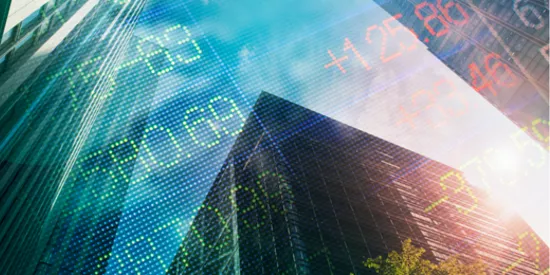
Cash management as a catalyst for China’s green development
Short-term green deposits are gaining traction as enterprises seek to make a lasting difference in the decarbonisation agenda
By Gavin Wang, Head of Payments & Cash Management, Societe Generale China and Joakim Hedhill, Head of MNC Coverage, Societe Generale China
China has set ambitious goals to reach a peak in its carbon emissions by 2030 and then achieve carbon neutrality by 2060. Transitioning an economy of this scale is unprecedented and will require full support from every segment of society – as well as a massive mobilisation of investment to make it happen.
The financial sector has an essential part to play in China’s decarbonisation by channelling funding towards green and low-carbon projects.
Banks channel capital to accelerate green transition
Cash management is a perfect example of how banking can act as a catalyst in this transition. Because the cash management business provides both deposits and short-term loans, it is a natural bridge between surplus capital and projects in need of funding.
In this context, we are encouraged to see growing demand for environmental, social and governance (ESG)-aligned cash management products in the Chinese market.
Green deposits provide an opportunity for clients with excess liquidity to participate in the decarbonisation agenda by providing funds to support low-carbon investments through green loans, for example. This allows companies to support decarbonisation even if they are not directly involved in green projects.
Societe Generale, one of the first banks to launch a green deposit product in China in September 2021, has recently supported companies including Volvo Cars Asia Pacific and L’Oreal China. Beijing Gas Group has also entrusted the Bank in China with its first ever green deposit, one of the first from a Chinese state-owned enterprise.
Providing such products assist client companies on their transition journey. Volvo Cars has announced to be fully electric by 2030 and to be a climate neutral company by 2040, which is one of the most ambitious plans in the automotive industry. Beijing Gas has been instrumental in shifting Beijing’s energy mix from coal to natural gas and is focused on becoming a world-class clean energy operator.
Significant market interest in green deposit products
Societe Generale China commits to providing annual updates to the depositors on how the funds have been used and is able to offer this service at a comparable pricing to a conventional corporate deposit.
In each case, the scheme is monitored by the bank’s global Sustainable and Positive Impact Finance Solutions Group to confirm that it is fully compliant with the group’s independently certified ESG framework. All green financings are structured to meet both European and Chinese definitions of green finance.
We see significant interest in this product from those corporates who want to show their commitment to sustainability.
This provides real value for consumer-facing companies such as L’Oreal, which is transitioning to a low-carbon business model and has reduced CO2 emissions from its production sites globally. By 2025, all sites will achieve carbon neutrality. By aligning its surplus liquidity with this agenda, L’Oreal is able to leverage its financial resources to support ESG related projects in its industry.
Aligning on sustainability
Innovative solutions like ESG deposits allow banking partners to support companies in aligning their financing strategies with sustainability objectives, while supporting clients’ growing needs for green funding, including short-term financing for working capital.
Societe Generale recently advised Hong Kong-listed Beijing Energy International Holding (BEH), the green energy development arm of state-owned Beijing Energy Holding, on a USD based green loan. BEH, the largest power producer for the Beijing municipality, is investing heavily in renewable energy in line with China’s decarbonisation policy, and the loan will support wind and solar power projects in China and overseas.
Sustainable cash management products have gained traction in the European market but are still a relatively new concept in China. They also tend to attract less attention compared to project financing and other capital markets instruments. In the transition to a low-carbon future, however, products that deliver surplus capital to where it can be put to sustainable use will be essential in making a meaningful difference.




